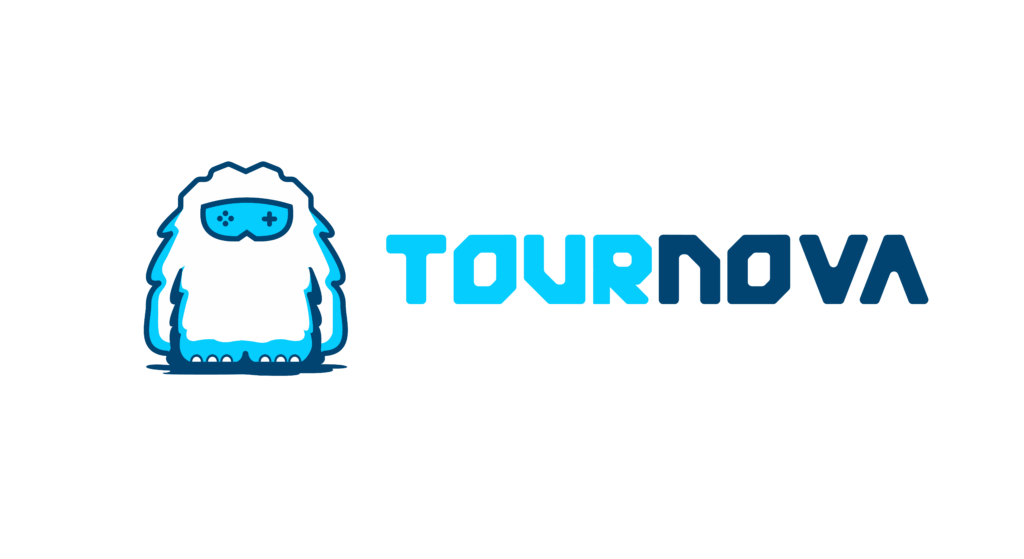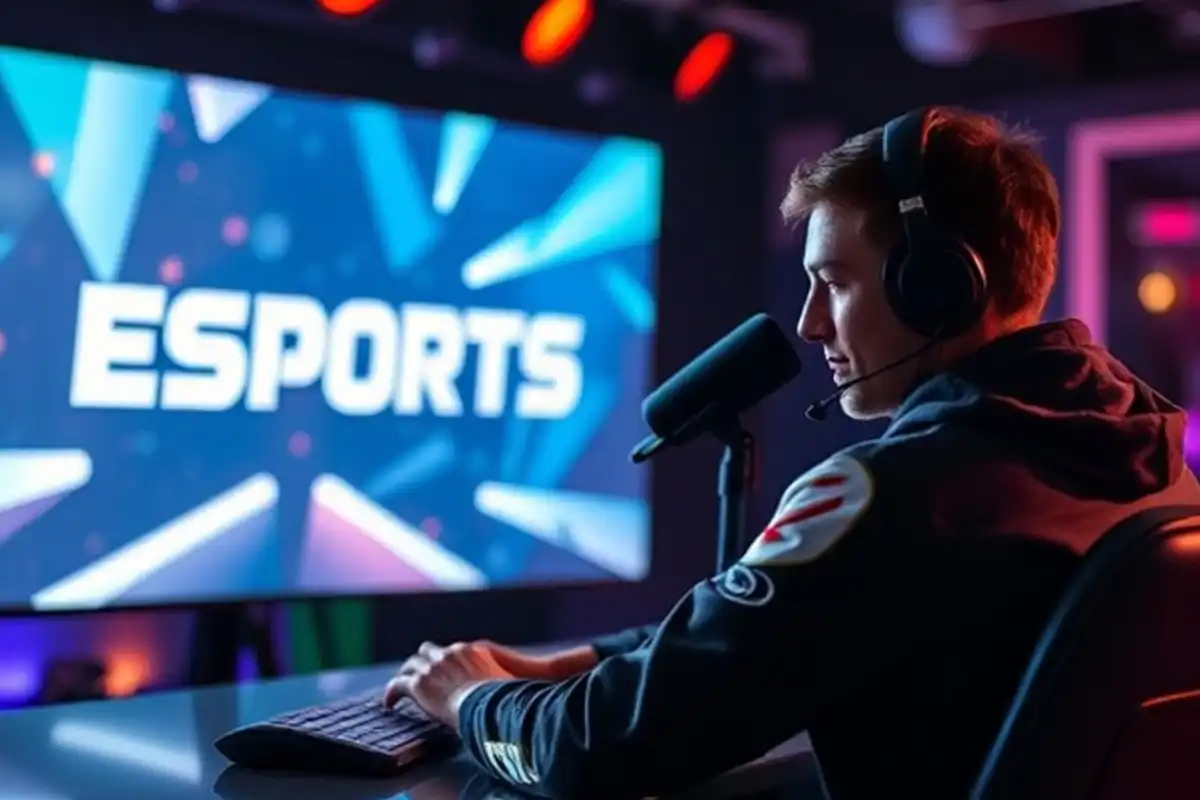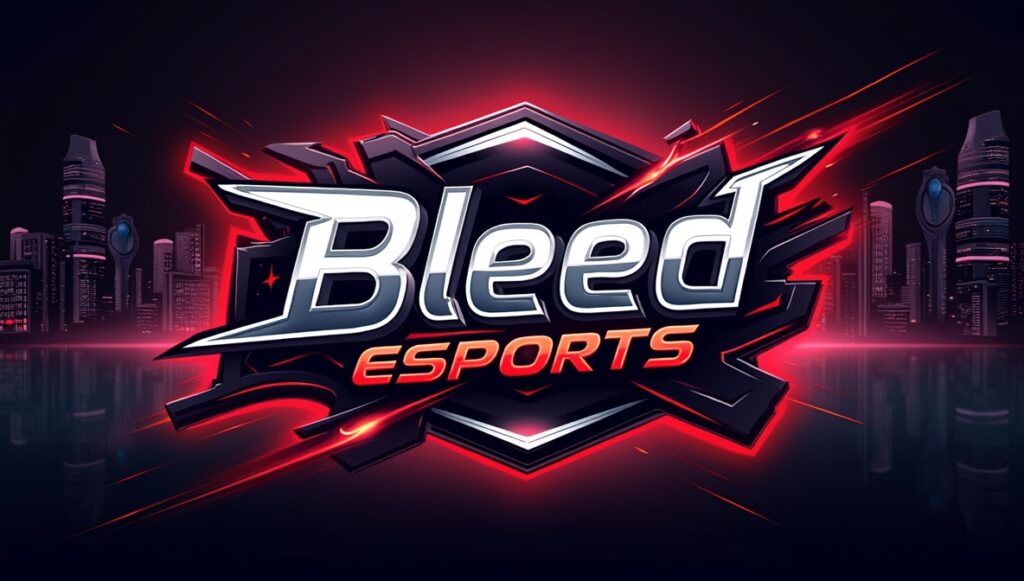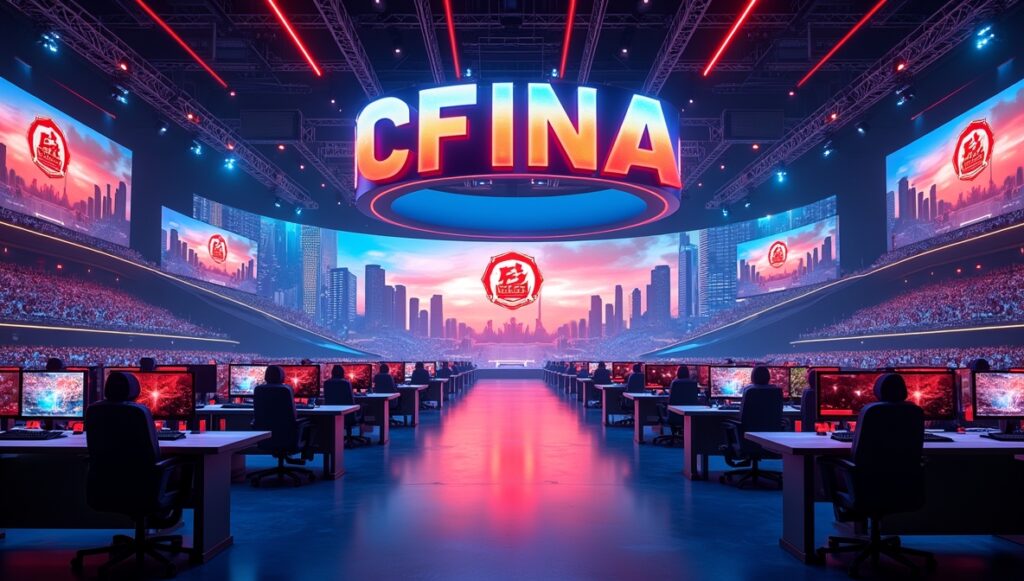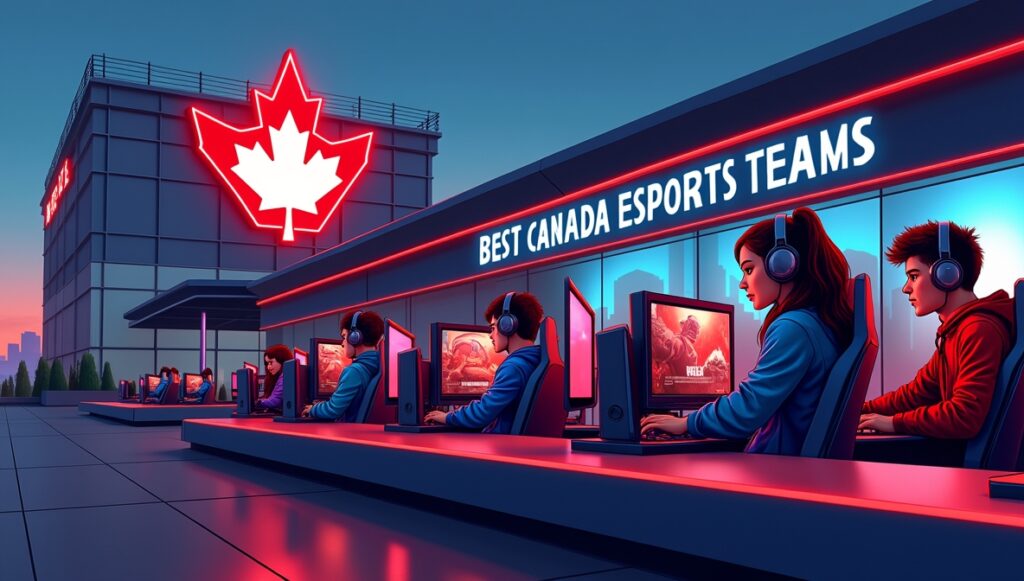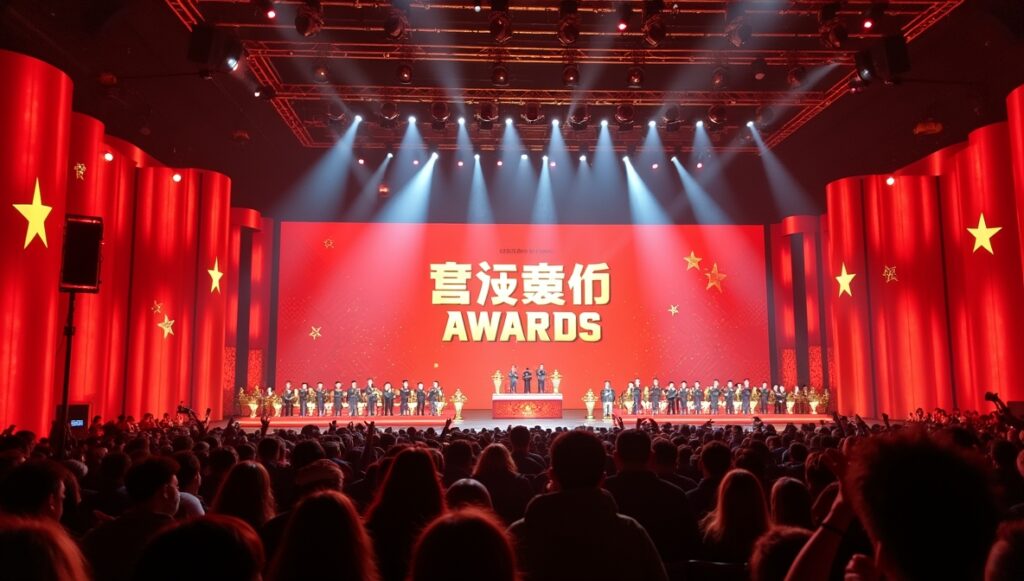Ever sat on your couch watching a heated esports match and thought, “I could totally be the voice behind that game”? If so, you’re not alone. Many of us have felt that spark, only to be overwhelmed by the sheer complexity of how to become an esports caster. With the booming growth of the industry, thousands are eager to jump into this exciting field, yet the path seems like a daunting quest. Knowing where to start, what skills are needed, and how to find your unique voice in an ocean of talent can feel like a Herculean task.
As the esports world skyrockets, casting offers an alluring career loaded with excitement and challenges. However, without the proper guidance on skills, tools, and connections, breaking in can feel impossible. But don’t worry—we’re here to guide you step-by-step on how to transition from dreaming on your couch to commentating on the virtual battlefield. Let’s dive into the strategies and insights that will help you carve out a niche in this vibrant industry.
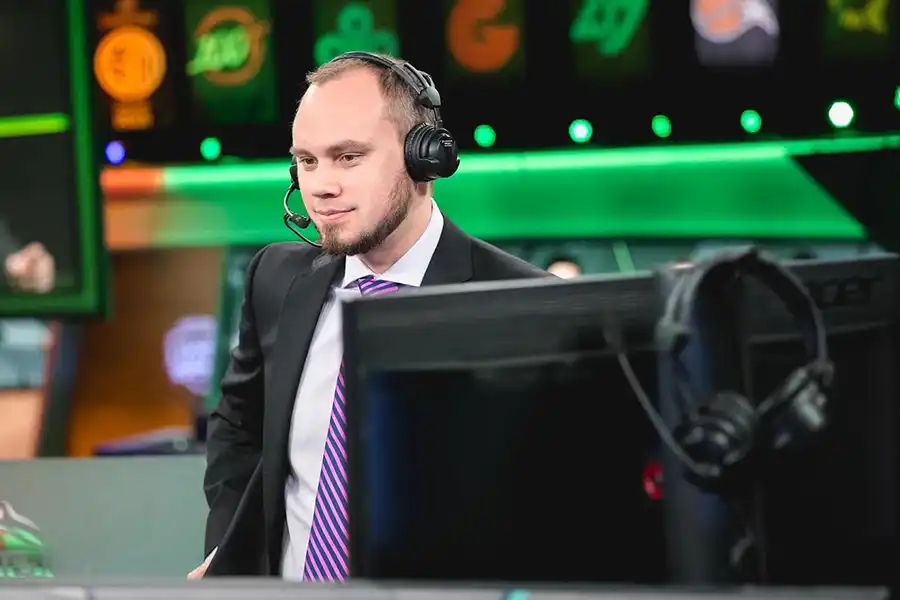
Who is an Esports Caster?
Esports casting, simply put, is the narrative backbone of competitive gaming. Casters are the storytellers of the esports world, articulating the whirlwind of on-screen action into engaging commentary that captures audiences worldwide. Whether they’re explaining a strategic play, hyping up a clutch moment, or providing nuanced game insights, casters elevate the spectator experience, transforming chaos into coherent and thrilling tales.
Play-by-Play vs. Color Casting: Which Path is Right for You?
In the casting field, there are two primary roles: play-by-play and color casting. Think of play-by-play casters as the fast talkers, delivering real-time updates on everything happening in the game. They thrive on quick thinking and articulate delivery. If you enjoy speaking with speed and capturing the rush of the moment, this might be your path.
On the flip side of how to become an esports caster, color casters dive into the analysis, offering deeper insights and background to what’s unfolding. They complement the play-by-play with expertise and strategic assessments. For those who love dissecting game mechanics and providing context, color casting offers a satisfying avenue.
Core Skills Every Esports Caster Needs
Whether you lean towards play-by-play or color casting, several core skills are universally essential. First and foremost, game knowledge is crucial. Understanding the intricacies of games like League of Legends or Counter-Strike will set a strong foundation. Communication and voice control is next on the list—your ability to convey emotions and maintain clarity keeps the audience hooked.
Charisma and on-screen presence can’t be overlooked. A warm, confident demeanor invites audiences in. Finally, quick thinking and adaptability allow you to navigate unexpected developments smoothly—keeping the commentary exciting and fluid.
Essential Tools and Equipment for Esports Casting
Let’s see what you need to start your casting career.
1. Quality Microphone
A microphone is one of the most critical pieces of equipment for an esports caster. Investing in a high-quality condenser microphone can significantly enhance the clarity and richness of your voice. Popular choices include the Audio-Technica AT2020 or the Blue Yeti, which offer excellent sound quality for various budgets. USB microphones are often user-friendly and ideal for beginners, while XLR microphones can provide higher sound quality with more setup complexity, requiring an audio interface.
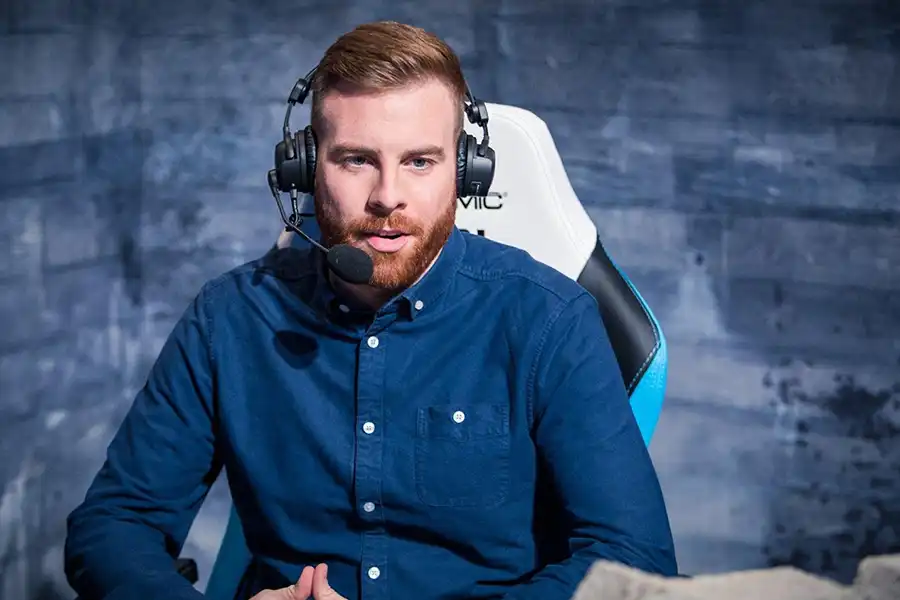
2. Headsets
While often overshadowed by microphones, headsets serve a dual purpose on how to become an esports caster: allowing you to hear the game and any co-casters with precision, and ensuring your broadcasts are free from background noise interference. Look for headsets that provide comfort for long sessions, such as the HyperX Cloud II or the Sennheiser GAME ONE, known for their sound quality and cushioning.
3. Streaming Software
Managing your broadcast requires reliable streaming software. OBS Studio is a popular, open-source choice that offers extensive customization options. It supports plugins, which can enhance its functionality, like integrating alerts or overlays. XSplit is another user-friendly alternative, providing robust support and advanced features like detailed scene transitions and live-stream editing.
4. Voice Modulation Software
Voice modulation tools like Voicemeeter or MorphVOX can add depth and personalization to your casting voice. These tools allow you to adjust pitch, and tone and even apply effects, which can be valuable for emphasizing particular in-game moments or adding unique flair to your broadcast.
5. Additional Equipment
- Lighting: Proper lighting setups using LED panels or ring lights, such as Neewer or Elgato Key Light, can improve your on-camera presence in video streams.
- Green Screen: A green screen, like those from Elgato, can help create professional backgrounds, essential for personal branding.
- Camera: While optional, a good camera can humanize your streams, with devices like the Logitech C920 being a popular choice for high-definition visuals.
Training and Practice Tips for Aspiring Casters
- Reviewing Game Footage
One of the most effective ways to improve your casting skills in the matter of how to become an esports caster is by revisiting game footage. This can include your broadcasts or professional esports events. Analyze the styles of experienced casters, noting how they maintain game flow, engage audiences, and manage pacing.
- Real-Time Commentary Practice
Practicing live commentary on games, even offline, helps in understanding pacing and developing your spontaneous response skills. This can be done by muting the audio of a live match and trying to comment along with the action, paying attention to clear articulation and concise descriptions.
- Recording and Self-Evaluation
Record your practice sessions to objectively assess what’s working and what isn’t. Listening to your voice can be eye-opening, helping you identify areas that may require adjustments, such as reducing filler words or adjusting pitch.
- Joining Online Communities
Communities like Discord servers or Reddit forums dedicated to esports casting can provide platforms for exchanging feedback. Engage in group projects or contests to simulate competitive environments, which can enhance your adaptability and readiness for live scenarios.
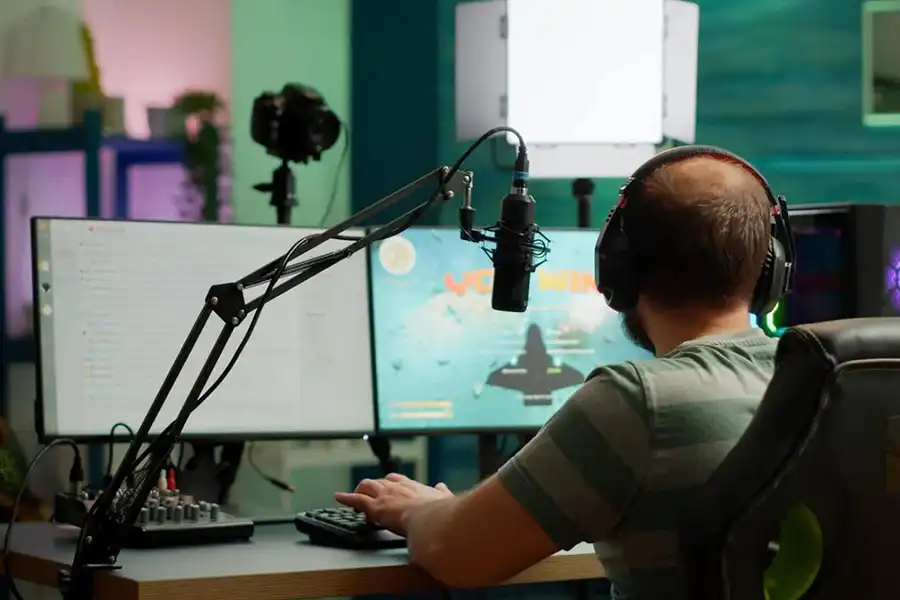
- Emulating and Innovating
Study renowned casters in your chosen game to understand their techniques. Figures like Froskurinn can provide insights into style and delivery. However, while emulating these techniques, focus on cultivating a unique style that highlights your personality and perspective.
- Building Confidence
Consistency in practice will naturally increase your confidence, an important topic on how to become an esports caster. Regularly push your boundaries by tackling more complex scenarios or participating in mock tournaments. This practice not only hones your technical skills but also builds resilience and stage presence, essential for professional casting.
These tools and practice techniques are stepping stones towards a successful career in esports casting, enabling you to deliver engaging and professional broadcasts.
How to Build Game Knowledge for Casting
- Staying Updated with Patch Notes
One of the foundational aspects of maintaining game knowledge is staying updated with patch notes. These updates often come with adjustments that can shift the game meta, introducing new strategies or altering existing ones. Set a routine to review these notes systematically, perhaps by subscribing to newsletters or forums specific to your game of interest. Understanding these changes helps you provide insightful commentary on how they might influence competitive play.
- Taking Part in Online Communities
Participation in online communities such as subreddits, Discord channels, and esports forums is invaluable. These platforms are buzzing with discussions on strategies, meta-shifts, and player performance. Engaging with these communities not only updates you with the latest trends but also allows you to gauge community sentiments and popular opinions, which can enrich your commentary with context.
- Analyzing Professional Matches
Watching professional matches is a critical exercise for aspiring casters. Pay attention to in-game decisions, player positioning, and team dynamics. Notice what professional casters emphasize: strategic plays, player emotions, or pivotal moments. Recording your observations and creating a list of key takeaways can enhance your analytical skills. Additionally, listening to the language and terminology used can refine your vocabulary specific to the game.
- Leveraging Educational Content
Numerous content creators produce educational videos on strategies, in-game mechanics, and player analysis. Platforms like YouTube and Twitch offer tutorial streams and video essays that break down complex strategies into digestible insights. Following skilled players or analysts on these platforms can further deepen your understanding and help you how to become an esports caster.
- Engaging with Esports News
Stay tuned to esports news websites and podcasts. Sites like Dot Esports, ESPN Esports, and Inven Global often provide detailed analysis and commentary on recent tournaments, player transfers, and game developer announcements. They offer a broader view of the industry trends, ensuring your game knowledge is both deep and contextual.
Read More: 10 Professional Gamers Skills You Need to Master Now
Networking Tips to Break into the Industry
Here are some tips to start building your network in the eSports casting industry.
- Connect with Fellow Enthusiasts
Expanding your network starts with connecting to like-minded people. Engaging in X (Twitter) threads, joining Facebook groups, or becoming part of Discord communities related to esports can significantly boost your visibility and connections. These forums are excellent places to share your insights, receive feedback, and develop relationships with other casters or fans.
- Participate in Online Groups and Competitions
Many online platforms host amateur casting competitions or community casting events. Participating in these not only hones your skills but also increases your exposure. Competing or collaborating with others can lead to long-lasting relationships and potential professional connections.
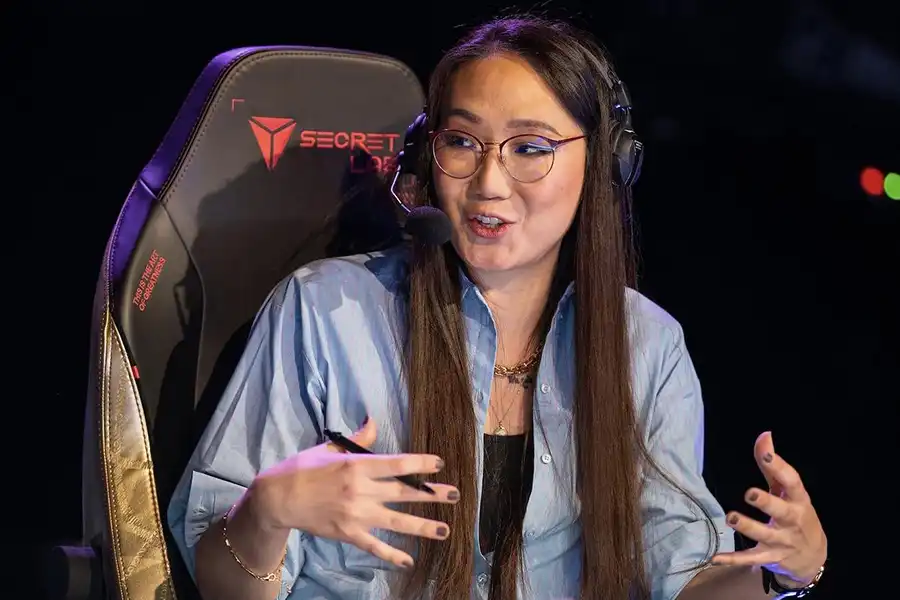
- Attend Esports Events
Attending events, whether virtually or in person, opens avenues for networking with industry professionals. Consider events like TwitchCon, PAX, or local esports tournaments. These venues allow for face-to-face interactions and the chance to exchange business cards or social media handles. Engage in panels and workshops whenever possible as they offer learning experiences combined with networking opportunities.
- Utilize Social Media Strategically
Platforms like LinkedIn, X (Twitter), and Instagram serve as powerful tools for professional networking. Follow industry professionals, engage with their content, and contribute meaningfully to discussions. Sharing your casting work, insights, or industry commentary can attract attention from both peers and potential employers on your journey of becoming an esports caster.
- Approach with Genuine Interest
Authenticity is a crucial component of effective networking. Instead of just focusing on what you can gain, consider what you bring to the relationship. Whether it’s sharing your insights, supporting others, or offering to collaborate, showing genuine interest and being helpful can create strong, reciprocal connections.
- Seek Mentorship
Reach out to established casters for mentorship. Many are willing to offer advice to newcomers who show dedication and passion. Approach them respectfully, showing specific knowledge of their work and explaining how their guidance can assist your career goals.
This expanded focus on building game knowledge and networking effectively should help you navigate the esports casting landscape more successfully.
Creating a Casting Portfolio and Demo Reel
Your demo reel is your casting resume. Select clips that highlight your strengths—whether it’s your analytical depth or your high-energy play-by-play. Crisp edits and a professional presentation can set you apart. Focus on variety to showcase your versatility across different games and casting styles.
A polished portfolio can open doors, serving as a tangible testament to your abilities and potential.
Landing Your First Gig as an Esports Caster
Starting small is no shame, and it often proves beneficial. Look for opportunities in smaller tournaments or local events. Volunteer roles can offer invaluable experience and exposure. Additionally, many online leagues are on the lookout for enthusiastic casters eager to grow alongside their competitions.
Persistence and passion will guide you from these grassroots beginnings to larger, more prestigious stages regarding how to become an esports caster.
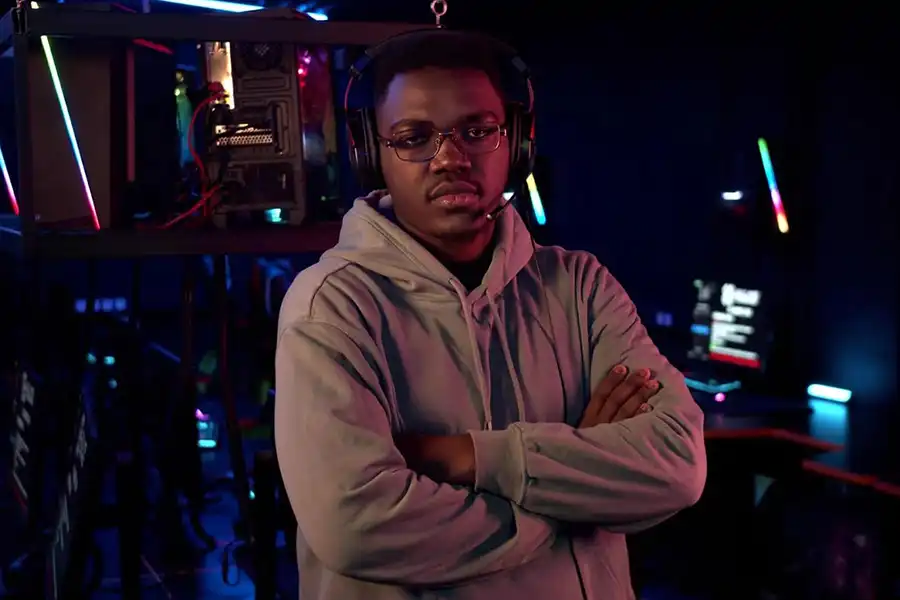
Esports Caster Career Path: From Amateur to Pro
Starting as an Amateur
The journey usually begins at the grassroots level, where aspiring casters often volunteer at local tournaments or community events. These smaller venues provide crucial experience and exposure, allowing you to hone your skills in a less pressured environment. It’s also a great place to experiment with different styles and receive direct feedback from a more intimate audience.
Building Your Portfolio
As you gain more experience, building a solid portfolio becomes essential. This includes recording your casts, selecting the best clips, and crafting a demo reel that showcases your range and skill. Your portfolio should highlight your strongest moments, whether they’re analytical insights, charismatic delivery, or adaptability in unexpected situations.
Freelance Casting
Many casters choose to start their professional journey as freelancers. This option allows flexibility, enabling you to work across multiple games and events. Freelancing helps in broadening your experience and establishing a diverse network. It requires self-promotion and a proactive approach to securing gigs, often through platforms like Fiverr or direct outreach to event organizers.
Pros of Freelancing
- Flexibility to choose projects that interest you.
- Opportunities to work with a wide range of games and communities.
- Potential to build a unique personal brand.
Challenges of Freelancing
- Income instability and the need for excellent self-management.
- Requires relentless self-marketing and networking efforts.
- Less access to mentorship and resources provided by established companies.
Joining a Team
You ask how to become an esports caster. Well, another pathway is becoming an in-house caster for a specific team. This role involves closely working with a team’s players and management to produce content, provide analysis, and engage with the fanbase. It offers stability and can deepen your insight into the competitive ecosystem of the specific game.
Pros of Joining a Team
- Steady employment and often more financial security.
- Access to resources and professional development.
- Deep involvement with team dynamics and game strategies.
Challenges of Joining a Team
- Limited to the team’s game roster and content strategy.
- Potential conflicts in aligning with the team’s branding and style.
Working with a Broadcast Network
Many professional casters aspire to join reputable broadcast networks like ESL, DreamHack, or Riot Games. These networks cover large-scale events and require casters to work both on-camera and behind the scenes, contributing to show production and storyboarding.
Pros of Broadcast Networks
- High visibility and recognition in the industry.
- Access to professional training and top-tier resources.
- Opportunities to work with top-tier esports events and celebrities.
Challenges of Broadcast Networks
- The high-pressure environment with large audiences.
- Less freedom in choosing games or casting styles.
- Competitive entry with rigorous selection processes.
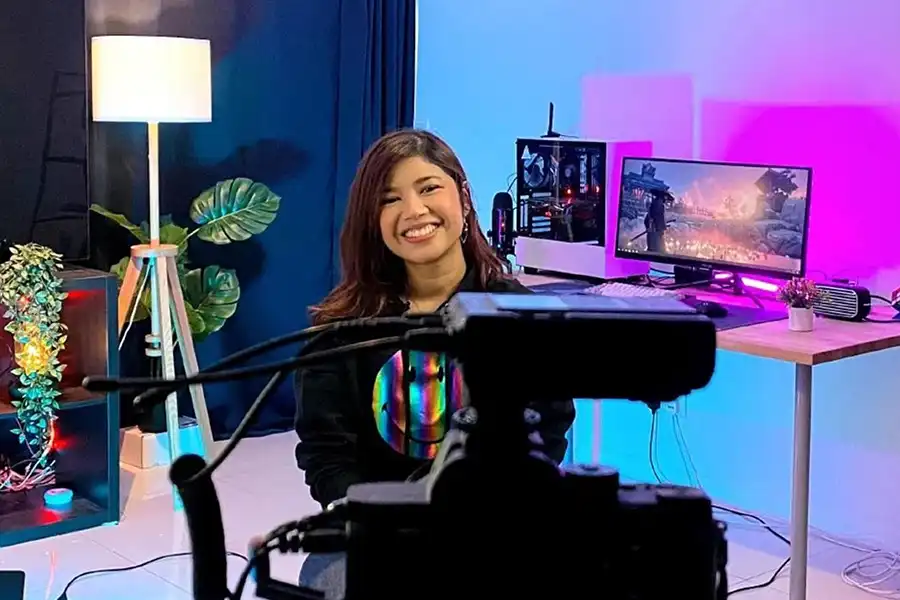
Caption: Being ambitious to learn new things about your job is quite effective.
Continuous Learning and Adaptability
Regardless of the chosen path on how to become an esports caster, continuous learning is essential. The esports industry is dynamic, with constant changes in game meta, technology, and audience expectations. Engage in regular self-assessment and seek feedback to evolve your commenting style. Additionally, staying tech-savvy and learning new broadcasting tools or software will ensure you remain versatile in an ever-evolving field.
Career Growth and Specialization
As your career progresses, consider specializing in a particular genre or game, bolstering your expertise in that area. Expert casters become synonymous with certain games, enhancing their reputation and marketability. Alternatively, expanding into roles such as analyst, host, or content creator can further diversify your career opportunities.
Ultimately, the journey from amateur to professional esports caster requires passion, resilience, and a strategic approach to career development. By evaluating your options and continually pushing the boundaries of your skills, you can carve a rewarding and successful path in this vibrant industry.
Read More: What Does an Esports Coach Do?
The Future of Esports Casting
As technology advances, so too does the potential for creative and immersive casting experiences. Interactive streams, augmented reality elements, and enhanced viewer engagement tools hint at a vibrant future. Adaptability and an eagerness to embrace new technologies will allow upcoming casters to thrive. Esports casting is expanding its horizons, making it an exciting time to be part of this dynamic industry.
Introducing TournovaServices
As an emerging leader in the esports ecosystem, Tournova provides versatile tools for casual and competitive gamers alike through its Telegram application and Discord bot. By harnessing the power of Web3 technologies, Tournova facilitates seamless tournament management, allowing users to earn tokens through participation. These tokens act as a catalyst for engagement, granting access to special tournaments and a vibrant digital marketplace. For game developers, Tournova offers seamless integration features to foster active user communities, while organizers benefit from flexible customization options, all without the need for additional software. This unique blend of accessibility and innovation positions Tournova as an indispensable ally in the world of esports, driving user interaction and enhancing the gaming experience.
Conclusion
The journey from aspiring commentator to professional esports caster is paved with opportunities for those willing to invest in their skills and persistently seek out connections and experiences. So, what’s the ultimate guide on how to become an esports caster? Embracing continuous learning, whether through mastering the latest casting techniques or engaging with industry veterans, is crucial to staying competitive. As technology evolves, so too does the potential for esports casting, making it an exciting time to pursue this career. By cultivating adaptability and a unique voice, you can establish yourself as a distinguished presence in the esports community, ready to grace the largest competitive stages with your narrative flair.
FAQ
What are common mistakes to avoid for beginner casters?
Avoid talking too fast without clarity; remember that pacing and enunciation are crucial. Refrain from excessive jargon unless your audience is highly informed. Finally, neglecting to engage the audience will make your commentary feel distant.
How can I improve my voice control for casting?
Practicing vocal exercises, staying hydrated, and maintaining a consistent speaking pace can enhance your voice control. Consider working with a voice coach for professional techniques tailored to casting.
Can I transition from a different career into esports casting?
Absolutely. Many casters have varied backgrounds. Emphasize transferable skills such as communication, teamwork, and any specialty gaming knowledge. Passion and dedication are what ultimately define success in the transition.
